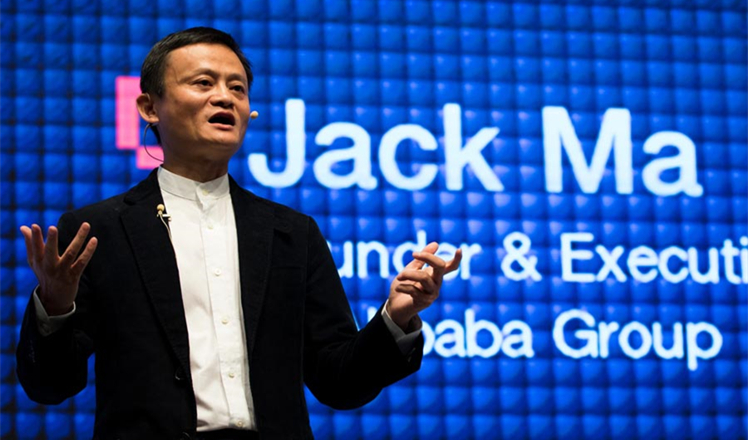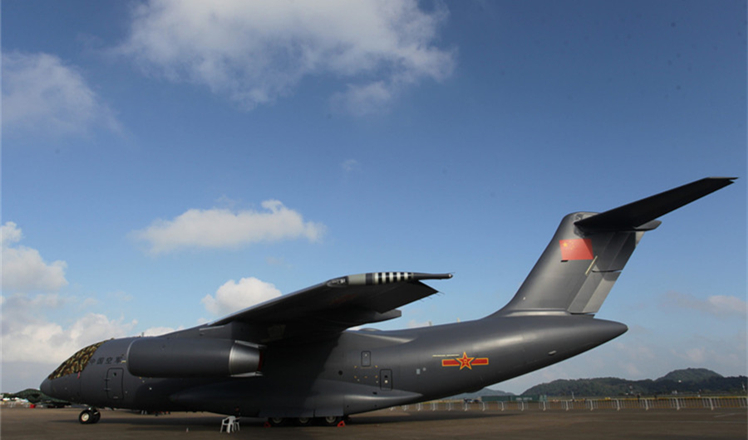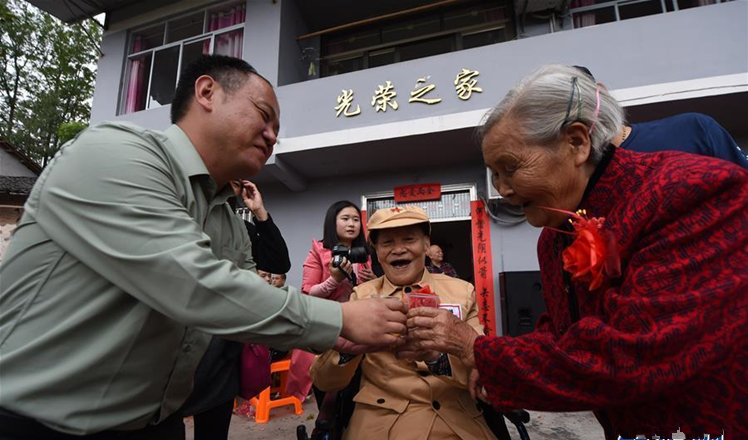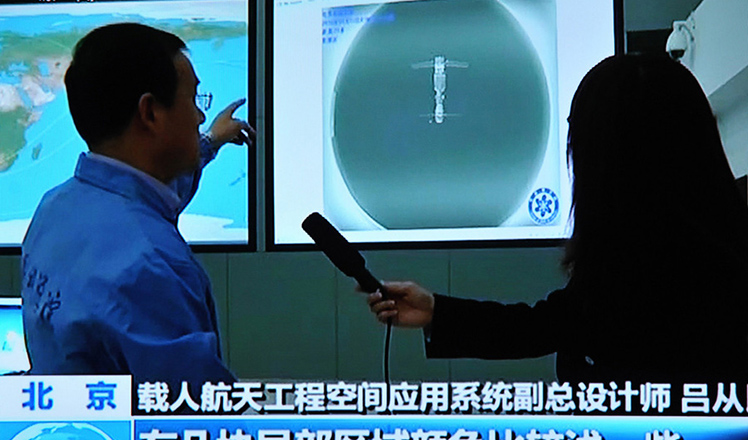Southwestern Chinese metropolis boosted by Belt and Road Initiative
Updated: 2016-10-13 11:00
(Xinhua)
|
||||||||
CHONGQING - The economy of southwest China's Chongqing municipality has been boosted by the Belt and Road Initiative, which aims to connect China and other countries along the ancient land and maritime Silk Roads.
Changes started in Chongqing as early as five years ago, when IT companies like HP and Acer set up operations in the municipality.
"These companies needed to develop a convenient, time-saving and cost-effective logistic path to send their products to global markets," said Yang Liqiong, director of the municipal logistics office.
This year, the Yuxinou (Chongqing-Xinjiang-Europe) Railway was opened to connect Chongqing and Duisburg, which is close to Germany's border with the Netherlands.
"Transportation arteries like Yuxinou ended the logistical isolation of Chongqing from countries along the Belt and Road," said Zhang Jun, chairman of the board of a potassium company in Kazakhstan.
In August, Chongqing signed a contract with the Kazakh company to jointly build a fertilizer distribution hub.
"The hub will be used to distribute fertilizers to southwestern provinces in China and also exported to Japan and Southeast Asian countries," Zhang said.
China need 14 million tons of potassium chloride per year, half of which needs to be imported.
"The hub would not have been possible if not for the Yuxinou Railway network," he added.
Better connection
In 2013, China proposed the Belt and Road Initiative, which aims to build a trade and infrastructure network connecting Asia with Europe and Africa, along ancient trade routes. Chongqing has been one of the most active provinces to spearhead efforts to implement the initiative.
The Yuxinou Railway, along with other transportation projects, has been expanded in capacity to support business and trade along the new silk road.
Regular bus services have been opened from Chongqing to southeastern Asian countries. Chongqing spent 10 billion yuan ($1.49 billion) to build the Guoyuan port on the Yangtze River. Rail, aviation and waterway transportation have diversified logistical choices for businesses.
"Inland areas like Chongqing used to be at the end of an international industrial division of labor. We have to wait for the resources to be transferred from developing countries, to the coastal areas of China, and then inland," said Guo Jian, head of the Chongqing municipal commission of economy and information.
"With improved infrastructure, we are in a better position to compete with others and promote business," he said.
Lifan, a Chongqing-based motorcycle and automobile manufacturer, saw a 20 percent growth in sales to the Russian market in last year, despite cross-the-board sluggish growth in the auto market.
"More than 80 percent of our exports to Russia go through Yuxinou Rail. Railway transport saves more than 30 days on shipping, and cut logistical costs by $5 million a year," said Chen Wei, vice president of Lifan.
Industrial upgrading
Chongqing is one of China's largest laptop manufacturing bases. Every year, millions of laptops travel through Yangtze waterways and on railway transport to other parts of China and to the overseas market. It also makes about a third of cell phones in China, or one sixth of the global total, according to an industrial forecast for this year.
"Logistics have figured rather importantly in each and every step as Chongqing builds a strong electronics industry. Good transportation and industrial infrastructure lured and kept strong companies here," said Guo.
Trans-border e-commerce is also booming in Chongqing. Osell, an e-commerce platform headquartered in Chongqing, connects 190,000 small and medium sized Chinese companies with more than 1.7 million overseas retailers and buyers around the world. In 2015, transactions enabled by Osell totaled over $5 billion.
Municipal authorities have pledged further efforts promoting economic development.
"Chongqing is working towards a faster clearing of goods, smoothing out logistical bottlenecks and solving financing problems for companies," said Yang Liqiong.
Authorities will improve the efficiency of the railway network and help develop a sound and healthy market for logistics, she said.
- Russian, German FMs discuss Syrian situation
- Workers wield sledgehammers to tear down Calais 'Jungle'
- Giant Panda-themed contest held to mark 45th anniversary of Belgium-China ties
- Lavrov, Kerry discuss Syrian situation
- Turkish troops kill 17 IS militants since Mosul operation: FM
- 59 killed in attack on police academy in Pakistan

 Tibet mandala: The world in a grain of sand
Tibet mandala: The world in a grain of sand
 Top 10 Chinese tycoons in IT industry
Top 10 Chinese tycoons in IT industry
 Planes ready to take off at Airshow China
Planes ready to take off at Airshow China
 Teacher's spirit keeps village school open
Teacher's spirit keeps village school open
 A sweet wedding worth waiting for
A sweet wedding worth waiting for
 Top 5 property destinations for Chinese investors
Top 5 property destinations for Chinese investors
 Accompanying satellite sends back images of Tiangong II, Shenzhou XI
Accompanying satellite sends back images of Tiangong II, Shenzhou XI
 Dare you jump
Dare you jump
Most Viewed
Editor's Picks

|

|

|

|

|

|
Today's Top News
'Zero Hunger Run' held in Rome
Trump outlines anti-terror plan, proposing extreme vetting for immigrants
Phelps puts spotlight on cupping
US launches airstrikes against IS targets in Libya's Sirte
Ministry slams US-Korean THAAD deployment
Two police officers shot at protest in Dallas
Abe's blame game reveals his policies failing to get results
Ending wildlife trafficking must be policy priority in Asia
US Weekly

|

|







